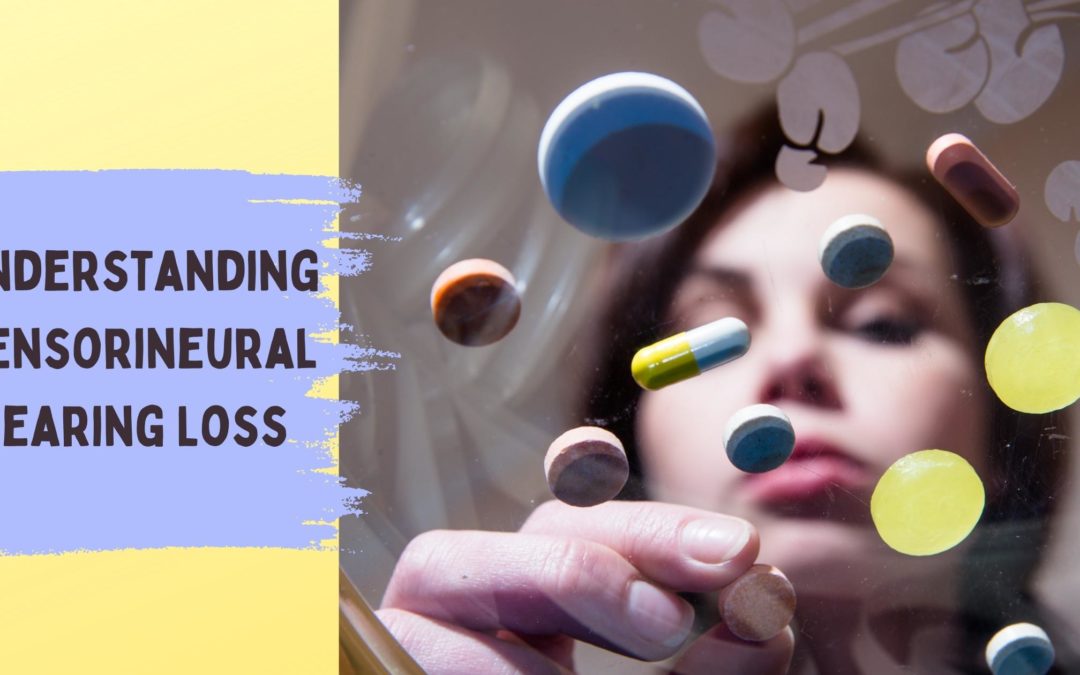The most common type of hearing loss is sensorineural hearing loss. In fact, age-related hearing loss and noise-induced hearing loss are two kinds of sensorineural hearing loss. So what is this kind of hearing loss, and how is it treated?
What is Sensorineural Hearing Loss?
Sensorineural hearing loss (SNHL) is often caused by damage to the inner ear. The cells in the inner ear are very delicate, and they’re easily damaged. When these cells are damaged or destroyed, you’ll experience hearing loss. SNHL can also be caused by damage to the auditory pathway connecting the ears to the brain, caused by damage in the auditory regions of the brain.
SNHL usually affects both ears, though you may notice that hearing loss is worse in one ear. It can be mild, moderate, severe, or profound. SNHL doesn’t get better, and there’s no way to reverse this kind of hearing loss. It’s also common that hearing abilities continue to gradually decline over time.
Sensorineural hearing loss is very distinct from conductive hearing loss, which is often caused by damage to the outer or middle ear from an injury or an illness.
Symptoms of Sensorineural Hearing Loss
So how do you know if you have SNHL? The main symptoms include struggling to hear soft sounds and high-pitched sounds. You will also have a hard time understanding speech. That’s because consonant sounds are often higher-pitched sounds. Even though you think you’re hearing all of the words, you will be missing important sounds in each word. This makes it very hard to actually understand what’s being said.
What Causes Sensorineural Hearing Loss?
SNHL is caused by anything that can damage the cells in the inner ear. Usually, sensorineural hearing loss is permanent. There’s no way to reverse this hearing loss, and no surgery or medication can restore hearing. The most common causes of SNHL include:
-
- The natural aging process: You may start to notice SNHL as you age. The cells in your ear, just like the cells in your body, go through a lot of wear and tear during your life. Some cells may naturally die, leading to hearing loss.
- Exposure to loud noise: Noise-induced hearing loss is another common cause of SNHL. When you’re in a place with excessively loud noise, the high volume can damage the cells in your ear. This can occur over a lifetime of working on noisy job sites, or it can happen in one evening at an extremely loud fireworks show or loud concert.
- Inner ear infections: Complications from bacterial and viral infections, including meningitis and measles, can lead to inner ear damage and hearing loss.
- Hereditary or congenital hearing loss: Some individuals are born with hereditary hearing loss, or may develop SNHL during a difficult pregnancy or delivery.
- Medications that damage the inner ear: There are several medications that can damage the cells in your ear. These medications, called ototoxic medications, cause permanent hearing loss. Ototoxic medications include anti-inflammatory medications, some antibiotics, and chemotherapy medications.
- An injury that damages the inner ear: A blow to the head or ear can cause hearing loss. A concussion can also damage the inner ear and make it harder to hear.
Treating Sensorineural Hearing Loss
SNHL is permanent. There is no cure for this kind of hearing loss, and no way to restore hearing. Thankfully, there are some extremely beneficial treatment options that can help you hear the sounds around you.
Treating sensorineural hearing loss with quality hearing aids will expand your hearing range and help you hear the sounds you’ve been missing. Sound quality will improve, and you won’t strain to hear conversations. Treating SNHL will also reduce listening fatigue, and you won’t feel so tired from everyday interactions.
Your hearing aids will be calibrated to perfectly match your unique hearing loss. They’ll be programs to help fill in the gaps in your hearing, make speech crystal clear, and help you effortlessly connect with friends and loved ones.
If you think you may have sensorineural hearing loss, contact us for a hearing test. The first step is to find out exactly what sounds you’re missing. Then we can work together to find the hearing aids that match your budget, your hearing needs, and your lifestyle.


